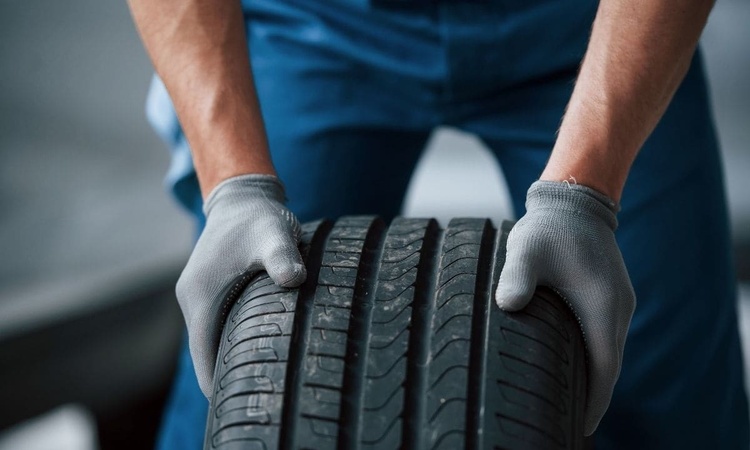When a Car Becomes More Than Just a Vehicle: Programs Supporting Single Mothers
For many single mothers, every day can feel like a balancing act between work, childcare, and countless responsibilities that rarely leave space for personal rest. Reliable transportation often stands at the center of this daily puzzle. Without it, something as simple as grocery shopping, bringing children to school, or getting to work on time can quickly become overwhelming. That is why certain initiatives across the United States are looking at old vehicles in a new light, creating programs where donated cars are transformed into real-life support for families who need them most.

Turning Donations Into Daily Support
Car donation programs specifically designed for single mothers operate on a fundamental understanding that transportation access directly impacts employment opportunities, healthcare access, and educational advancement. Organizations like Working Cars for Working Families and Vehicles for Change have developed comprehensive programs that pair donated vehicles with support services including financial literacy training, job placement assistance, and ongoing maintenance education.
The process typically begins when donors contribute vehicles that may no longer serve their needs but retain functional value. These cars undergo thorough mechanical inspections, necessary repairs, and safety updates before being matched with qualified recipients. Single mothers applying for these programs usually demonstrate employment or educational enrollment, along with the financial capacity to maintain insurance and basic vehicle upkeep.
Building Independence Not Just Solutions
The most effective car donation programs extend beyond simply providing transportation. Recipients participate in automotive education workshops, learning basic maintenance skills that reduce long-term costs and increase vehicle longevity. Many programs also incorporate financial planning components, helping single mothers budget for ongoing transportation expenses and build credit through responsible vehicle ownership.
Organizations often establish partnerships with local automotive training centers, community colleges, and workforce development agencies. This comprehensive approach ensures that receiving a donated vehicle becomes part of a larger journey toward economic independence rather than a temporary solution to transportation challenges.
A Chain of Kindness Between Donors and Families
The relationship between donors and recipients creates meaningful community connections that extend beyond the initial vehicle transfer. Many programs facilitate ongoing communication, allowing donors to witness the direct impact of their contributions. Recipients frequently report that knowing someone specifically chose to help their family provides emotional support that complements the practical benefits of reliable transportation.
Donor motivations vary widely, from individuals upgrading to newer vehicles to families managing estate situations. The tax benefits associated with charitable vehicle donations provide additional incentives, though most donors emphasize the personal satisfaction of supporting local families as their primary motivation.
Every Car Holds Potential
Vehicle eligibility for donation programs encompasses a broader range than many people realize. Cars with higher mileage, minor mechanical issues, or cosmetic imperfections often possess significant value for families lacking any transportation options. Programs typically accept vehicles that can be repaired to safe operating standards, recognizing that a functional older car provides immeasurable value compared to no vehicle at all.
The refurbishment process varies depending on each vehicle’s condition and the recipient’s specific needs. Some cars require only basic maintenance and safety inspections, while others undergo more extensive repairs. Skilled mechanics, often working with vocational training programs, contribute their expertise while simultaneously providing learning opportunities for students pursuing automotive careers.
More Than Transportation for Single Mothers
For single mothers, vehicle access transforms daily life logistics in profound ways. Employment opportunities expand dramatically when geographic limitations disappear, allowing access to positions with better compensation and advancement potential. Medical appointments, grocery shopping, and children’s activities become manageable rather than logistical challenges requiring complex public transportation coordination or expensive ride-sharing services.
Educational pursuits also become more feasible with reliable transportation. Single mothers can more easily attend college classes, vocational training programs, or professional development workshops that occur outside regular public transportation hours. This accessibility often leads to improved job prospects and increased earning potential over time.
Understanding Program Costs and Provider Options
While recipients typically receive vehicles at no cost, understanding the full scope of car donation programs requires examining the financial structures involved. Most programs require recipients to demonstrate ability to maintain auto insurance, which varies significantly by location and driving history.
| Program Name | Geographic Coverage | Recipient Requirements | Additional Services |
|---|---|---|---|
| Working Cars for Working Families | Northeast US | Employment verification, insurance capability | Financial counseling, maintenance training |
| Vehicles for Change | Maryland, Virginia, Washington DC | Income limits, employment/education enrollment | Job placement assistance, credit counseling |
| Cars 4 Christmas | Regional chapters nationwide | Application process, community referrals | Holiday support, family services |
| Good News Garage | New England | Employment verification, residency requirements | Automotive training, ongoing support |
Recipients should budget approximately $150-300 monthly for insurance, maintenance, and fuel costs, though actual expenses vary based on vehicle condition, local insurance rates, and individual driving patterns. Many programs provide guidance on securing affordable insurance options and connecting recipients with reliable, reasonably-priced maintenance services in their communities.
Prices, rates, or cost estimates mentioned in this article are based on the latest available information but may change over time. Independent research is advised before making financial decisions.
Car donation programs supporting single mothers represent powerful examples of community-driven solutions addressing complex social challenges. By transforming donated vehicles into tools for independence, these initiatives create lasting positive impacts that extend far beyond transportation access. The combination of practical support, education, and ongoing assistance helps ensure that recipients can maximize the opportunities that reliable transportation provides, ultimately strengthening families and communities throughout the process.




